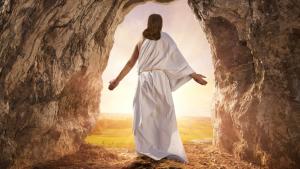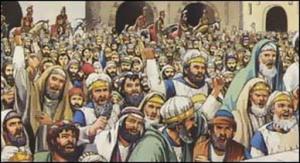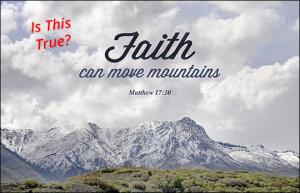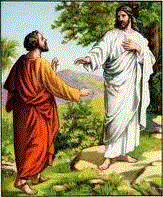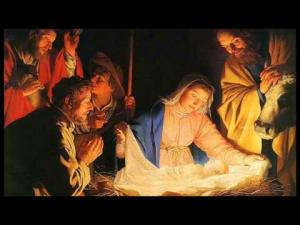
The infancy stories that we find in the Gospels of Matthew and Luke pose two problems. One is for the historian, who wants to distinguish the historical Jesus from the evangelists’ theological interpretations. The more important problem is for the theologian who wants from Jesus a way into some understanding of God and world. The stories tell of a very human and very divine Jesus. It may just be that the humanity of Jesus, as historians can discern it, is the better clue to God’s character, while non-historical features of the stories tell more of what we need to know about the history of the world.
Another post will introduce some historical skepticism and temper the miraculous and other-worldly feel of the stories. Jesus may be less obviously supernatural than the infancy stories appear to make him. If that theme continues into Jesus adulthood, one encounters the challenge of understanding God anew through the humanity of Jesus?
In this post I will make some claims about what may be historical, even if unexpected, in the infancy stories. I will follow N. T. Wright’s reasoning in The Meaning of Jesus about the historical plausibility of the birth in Bethlehem and the virginal conception. A few parts of the Bible stories of Jesus’ beginning are uncontroversial. Mary is Jesus’ mother. Joseph is his father. He grew up in Nazareth. Scholars find controversial the Bible’s claim that Jesus was born in Bethlehem. Naturally Mary’s virginity becomes a primary subject of both historical critique and defense.
Fourth in a series of posts that I call “Stories of Jesus and the Character of God.” In this series I probe what historical Jesus scholars can say about the humanness and the earthly career of Jesus—beyond which historical research cannot go. The ultimate objective is to let this Jesus reveal the character of God. Contents and links to other entries in the series here.
Bethlehem, the City of David.
At first glance, the birth in Bethlehem looks suspicious because of the saying in Micah 5:1,
But you, Bethlehem Ephrathah, too small to be among the clans of Judah from you shall come forth for me one who is to be ruler in Israel; whose origin is from of old….
Matthew quotes this verse, originally not about a distant Messiah, and applies it to Jesus. A central theme in Matthew’s Gospel is that Jesus incorporates in himself and fulfills Jewish history. Mightn’t Matthew have placed Jesus’ birth in Bethlehem simply because it was fitting for such a figure to be born there? Or, couldn’t one say the birth in Bethlehem, David’s city, is Matthew’s symbol for what he wants to say–that Jesus is the promised heir to David’s throne?
If we had only Matthew for a source, we might have to leave it at that. But Luke places Jesus’ birth in Bethlehem too, and he doesn’t quote the verse from Micah. Luke takes some trouble, in his story, to get pregnant Mary to Bethlehem. A historically non-existent (or temporally misplaced) census requires Joseph to leave Nazareth for his ancestral city. Others have commented about the implausibility of such a requirement—the administrative nightmare that would have resulted. Luke seems to have taken rather too much trouble without the same theological need as Matthew to symbolize Jesus’ as Son of David. Unless, that is, Luke is dealing with an actual memory of Jesus birth in Bethlehem.
Many scholars put Jesus’ birth in Nazareth. They rely on the historical probability that that’s where Jesus was raised. But Wright’s argument, it seems to me, makes a Bethlehem birth place plausible. “Jesus’ birth at Bethlehem seems to have been a puzzle to Luke (which he explains by the census), rather than something he has invented to make some other point.” (Meaning, p. 175)
The virginal conception.
Virginal conception is not a possibility that this world offers. In a scientific frame of mind one might see belief in the Bible’s account of Mary’s motherhood as a product of mythical thinking. Wright says equally mythological is the thinking that rules out in advance anything that doesn’t conform to a “closed continuum of cause and effect.” That is our Enlightenment/modernist myth. (Meaning, p. 173)
Then Wright outlines the historical plausibility that Matthew and Luke were doing something other than repeating a myth. To summarize:
- There is no virgin birth in Jewish lore. Isaiah 7:14 says, in the New American Bible’s translation, “The virgin shall be with child.” But no one before Matthew, says Wright, thought that this young woman would conceive in anything other than the normal way. (176)
- So if Matthew or Luke were borrowing a myth it would have to have been from Paganism. Alexander, Augustus, and others were said to have been born of virgins.
- But Matthew wrote a completely Jewish story, and Luke makes a point of opposing Jesus to Caesar as the one who really rules the world. On the supposition of borrowing from Paganism,
the evangelists would then have thoroughly deconstructed their own deep intentions, suggesting that the climax of YHWH’s purpose for Israel took place through none other than a pagan-style miraculous birth. (177)
Wright’s argument is hardly a historical proof of a virgin birth, but it does, I think, sweep aside historical objections.
The scientific objection
I don’t believe scientific objections fall away just because some of the modern world’s confidence in science can be termed mythological. It takes a much longer rebuttal than that. Briefly, I think we have some experience of the limitations of science’s reach. It seems unlikely, for example, that science could ever encompass love, beauty, morality, or even its own orientation toward truth.
On the other side of the coin, God may have more in store for the world than science can dream of. But then theology needs to come up with a way of naming God’s relation to the world other than through science-like categories of cause and effect. That’s like rethinking the whole idea of creation—a larger discussion than I have in view at the moment.
The present series will continue with features of the infancy stories that some bible scholars consider non-historical



